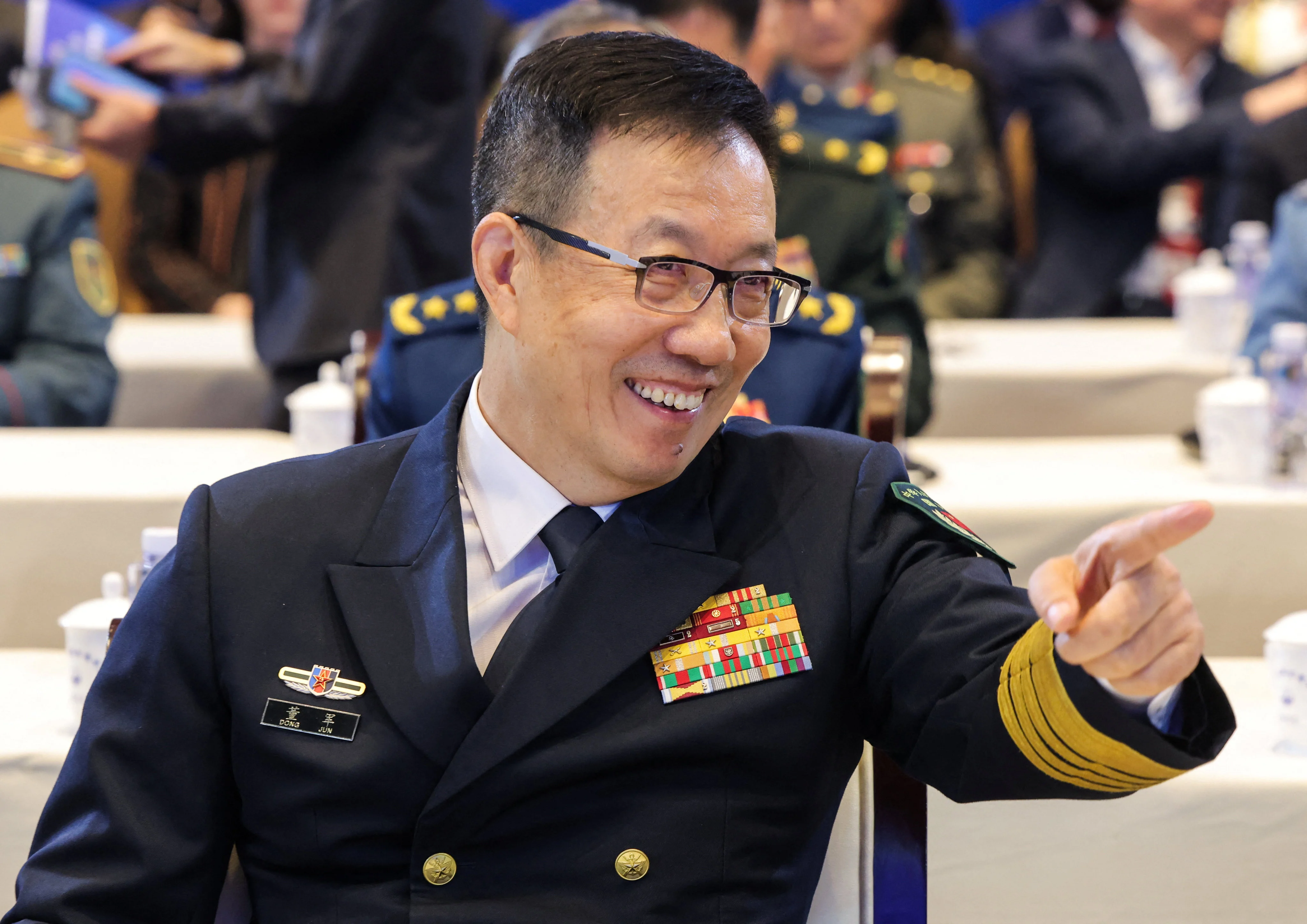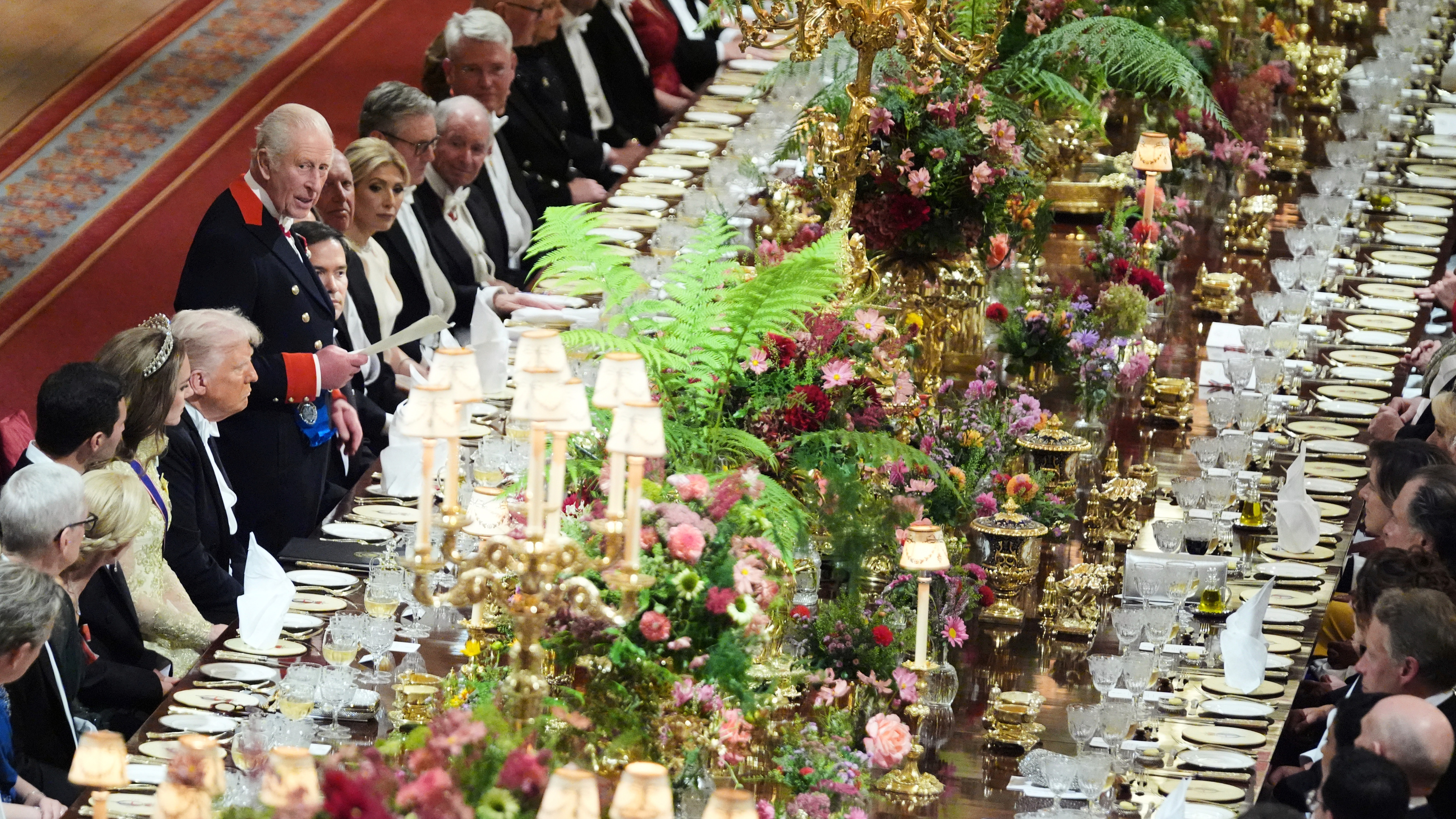By Dewey Sim,Zhao Ziwen
Copyright scmp

China’s defence minister summoned familiar talking points as he took aim at Western nations during a security conference on Thursday, urging nations to stand up against “bullying” and describing military alliances as groups with “selfish interests”.
Dong Jun did not name any country but his calls appeared to resonate with defence chiefs from Southeast Asia, as they took turns criticising unilateral action, including US tariffs, and calling for greater efforts to advance multilateralism.
Dong launched his roughly half-hour address at the Beijing Xiangshan Forum by warning about the uncertain state of the international environment, cautioning that the world was undergoing rapid changes and “overshadowed by a cold war mentality, hegemonism and protectionism”.
He urged countries to cooperate to defend the post-war order and – in a veiled reference to the United States – to stand up against “disguised hegemonic logic and bullying acts”.
“Today, the world is standing at another crossroads: peace or war, dialogue or confrontation, win-win or zero-sum. We must make the just and right choice,” he said, echoing remarks made by President Xi Jinping at the country’s Victory Day military parade earlier this month.
In a swipe at Western-led groups, Dong framed military alliances and political blocs as “small, exclusive groups that serve hegemonic and selfish interests”, adding that such groups “carve up interests together”.
“Countries in these blocs view others as either friend or foe,” he said. “To maintain legitimacy, they have to create opponents and keep fuelling division and exporting chaos. We must stay highly vigilant against and oppose such moves.”
In contrast, Dong said China believed in partnerships and would have “as many friends as possible”. The Chinese military was ready to work with countries to serve as a “force for peace, stability and progress” and build “a more equitable global governance system”.
Even as Dong urged countries to reform the global governance system, he stressed it did not mean overturning the existing order. Rather, he said, the goal was to reinforce the pillars of the system.
To that end, Dong said the “return of Taiwan to China is an integral part of the post-war international order”.
“The People’s Liberation Army is always a strong force defending national reunification. We will never allow any separatist attempts for Taiwan independence to succeed, and we are ready to thwart any external military interference at all times,” he said.
Beijing sees Taiwan as part of China to be reunited by force if necessary. The US, like most countries, does not recognise Taiwan as independent but is opposed to any attempt to take it by force and is committed to arming the island to defend itself.
Dong’s remarks were similar to calls by the Chinese leadership in recent months against unilateral and protectionist measures by the US amid a push by Beijing to portray itself as a stable world power that champions the rights of countries, particularly from the Global South.
The message was repeated several times this month, including at the Shanghai Cooperation Organisation (SCO) summit in Tianjin, where Xi said that “the Cold War mentality, hegemonism and protectionism continue to haunt the world.”
Xi, who launched the Global Governance Initiative (GGI) at the summit, told leaders from the grouping that they should “unequivocally oppose hegemonism and power politics, practice true multilateralism, and stand as a pillar in promoting a multipolar world”. The initiative is viewed as China’s vision for reshaping the international system.
On Thursday, during a discussion on global security governance at the forum, China’s assistant foreign minister, Hong Lei, touted the GGI, alongside other Chinese initiatives, as providing stability to the world and showcasing “China’s sense of responsibility and real actions on international affairs”.
The international landscape was fraught with disorder and “hegemonic and bullying acts in particular have inflicted profound harm” on multilateral frameworks such as the United Nations, he said, calling for reform to the governance of global security.
Similar sentiments were echoed by leaders from Southeast Asia, a region that Beijing has increasingly sought to court as countries navigate sweeping tariffs imposed by US President Donald Trump. Southeast Asian economies have been among the hardest hit by Trump’s tariffs.
Vietnamese Defence Minister General Phan Van Giang said the world was in “an era full of turmoil but also full of opportunities”, noting that deepening strategic competition between countries and “unilateral” actions had had a profound impact on global security governance.
He warned that disagreements over interests could turn into conflicts if not handled properly and that regional hotspots and territorial disputes had the potential to flare up, threatening peace and stability.
“In the context of increasingly intertwined traditional and non-traditional security challenges, multilateralism is not only an option but an inevitable path to maintain peace and stability,” Phan said, adding that it was necessary to continually promote multilateralism.
“Vietnam opposes hegemony, power supremacy, unilateralism [and the] cold war mentality,” he added. “We appreciate China’s good performance as a responsible major power.”
Chan Chun Sing, Singapore’s defence minister, criticised the US tariffs, saying “the issue is not just that the tariffs are high or higher, but they are uncertain and volatile”, adding that they would cause businesses to hold back on investment and consumers to reduce their consumption.
“All countries, big and small, have a shared responsibility and the agency to build a world that we want to see … underpinned by international law and sovereign equality,” he said in a call for collective resistance against unilateralism, warning that the world was now at risk of falling into a pre-World War II cycle.
But the Singaporean official also cautioned against taking sides in a superpower rivalry between the US and China, saying that “being a proxy for others breeds irrelevance and undermines one’s agency”.
Southeast Asian leaders have repeatedly maintained that they will not be forced to choose sides as the strategic competition between major power deepens. China is the largest trading partner for Southeast Asia, and most countries, including Singapore, have strong security ties with the US.
“Small states cannot afford to take sides. Instead, we should consistently take positions that underpin an open and inclusive rules-based order. That is the surest way to secure our survival and success in the long term,” Chan said.
Malaysian Defence Minister Mohamed Khaled Nordin also called for more effort to advance multilateralism, warning that any disruption to peace and stability in Southeast Asia would ripple across the Asia-Pacific and the world.
Myanmar’s union minister for defence, Maung Maung Aye, added that his country “welcomes a new world that rejects hegemony and eliminates global injustice”, saying countries should push for diverse governance systems.
“It is imperative to build strategic mutual trust among nations … there must always be an opportunity for all countries, regardless of size, to engage in equal and open discussion,” he said.



